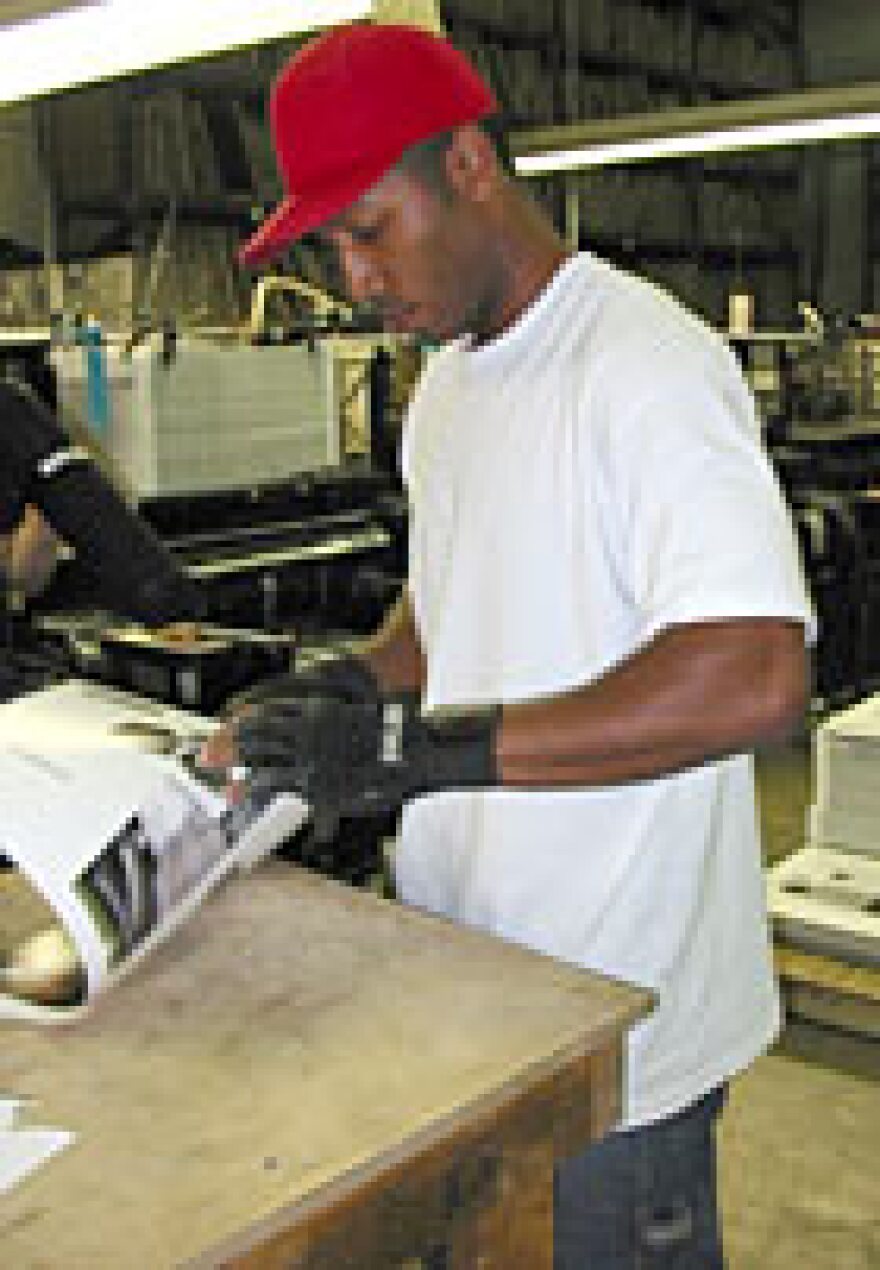
The nation's prison population hit 2.1 million people last year -- a record high. Law enforcement officials, charity workers, and others are just starting to focus on what happens when all those inmates get out. On Morning Edition, NPR's Steve Inskeep reports on efforts in Baltimore, Md., to find jobs for those who are determined to stay out of prison.
In Baltimore, 8,500 prisoners are released into the city every year. Karstent Jeffries, one of the latest to be freed, was released last week. The 33-year-old convicted armed robber works as a die cutter press operator at K & W Finishing Inc., a paper cutting plant. He found the job while he was still in prison.
"Anyone that's been in prison a lengthy period of time (who says) they're not scared, they're lying," Jeffries says. "They're scared to face their fears. My fear (is) what am I going to do? How am I going to adapt to society? Going out looking for a job, how will they take me? They say, 'We don't hire convicted felons, especially robbers.'"
Kathy Holmes, a supervisor at K & W, says her company decided to hire convicts because it needs the workers and because the owner wanted to give people a second chance.
"You have to throw all your stereotypes out the window, you really do," Holmes says. "I don't ask them, 'What did you do? Why are you here?' I focus more on what their skills are, what their personality is, and where they've been."
Copyright 2022 NPR. To see more, visit https://www.npr.org.


